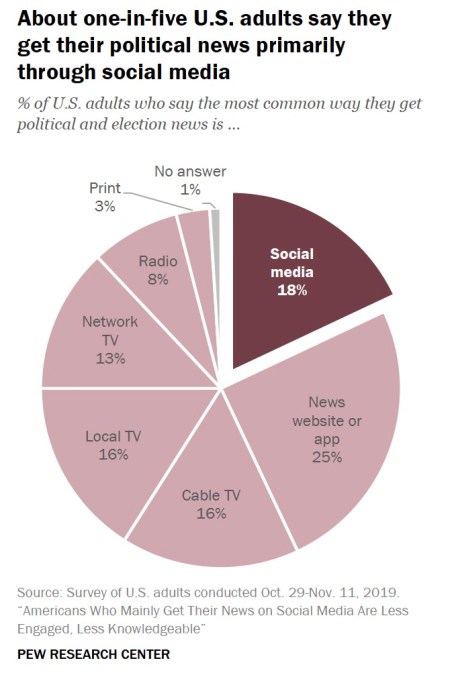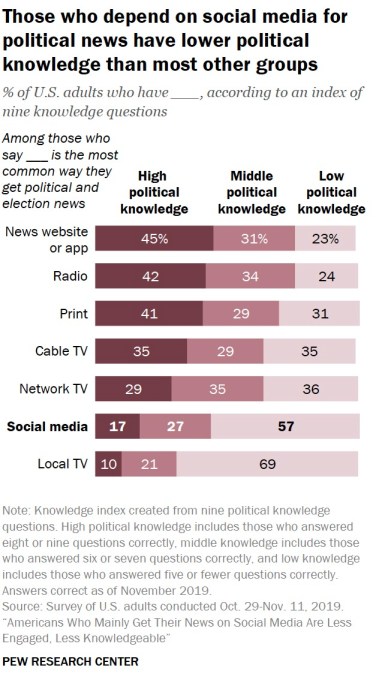

Across nine questions related to foundational political knowledge, only 17% of primarily social media news consumers scored “high political knowledge,” meaning they got eight to nine of the questions right; 27% scored “middle political knowledge” (six-seven right) and 57% scored “low political knowledge” (five or fewer right.) The only group that did worse were those who primarily relied on local TV.
Also, 45% of those who got their news primarily via websites and apps, meanwhile, had “high political knowledge,” compared with 42% for radio, 41% for print, 35% for cable TV and 29% for network TV.
The social media group of news consumers was also more exposed to fringe conspiracies, like the idea that the pandemic was intentionally planned. Nearly a quarter (26%) of those who primarily got their news via social media said they had heard “a lot” about this conspiracy, and a sizable 81% said they had at least “a little.” This was significantly higher than all other news platforms, and a indication of how much conspiracies can spread across social media.

Study: US adults who mostly rely on social media for news are less informed, exposed to more conspiracies | TechCrunch
A new report from Pew Research makes an attempt to better understand U.S. adults who get their news largely from social media platforms, and compare their


